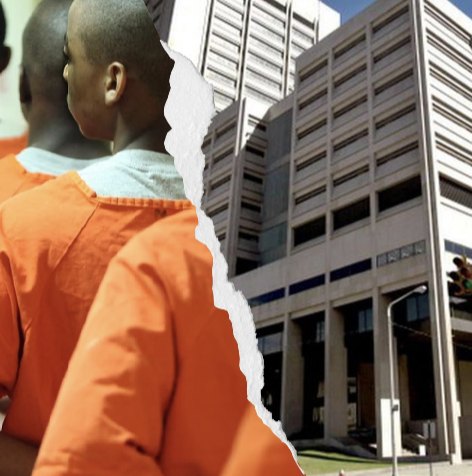Resources for the Dec. 6 Action, Justice for Our Children: A Public Hearing to End Abuse of Discretionary Youth Bindover!
Recording of the Action Here!
Check out the action recording and transcription, linked here:
Voter Guide
You can find the Voter Guide for the November General Election linked here!
To learn more about the action...
Visit this link for background information about Discretionary Juvenile Bindover and to learn about our presenters.
Post-Action Commitment
Fill out the Post-Action Commitment form, linked here: https://forms.gle/gnXCRmV8wvb5VGxV8
Petition
If you agree to stand with GCC against Discretionary Bindover in Cuyahoga County as we push for changes with our County Prosecutor, County Executive and Juvenile Court, please fill out the following information: https://forms.gle/DTmxVe4NDkLhxpc88
Media Recognition
Check out these articles that feature GCC's action!
Glossary of Terms
- Juvenile Court: has exclusive jurisdiction over all cases involving youth under age 18 who are accused of violating the law—can continue to make orders, supervise, or otherwise work with youth in its jurisdiction until they reach 21 years of age.
- Bindover: process where a juvenile court judge transfers a child’s case from juvenile court to adult court—where the child is prosecuted and sentenced as an adult. In Ohio, bindover applies to children 14 and older. There are 2 types of bindover in Ohio: mandatory and discretionary.
- Mandatory Bindover: certain charges require the case to be transferred to adult court. If the juvenile court judge finds the child’s age and charged offense meets the requirements under the law, they must transfer the child to adult court without considering anything else.
- Discretionary Bindover: the juvenile court judge may, but is not required to, transfer the child’s case to adult court. If the judge decides that the child is capable of being rehabilitated in the juvenile system, they are not boundover.
- Amenability: the process by which the court decides whether the child is capable of being rehabilitated in the juvenile justice system. The child is evaluated, and the court considers factors set forth by law.
- Serious Youthful Offender (SYO): An alternative to bindover where the child stays in juvenile court and they receive a blended sentence—both a juvenile court disposition and a suspended adult sentence. If the child successfully completes their juvenile disposition, they don’t serve their adult sentence. If they are not successful in the juvenile system, their adult sentence can be imposed. ?
- Delinquent: children who violate the law are found “delinquent” in juvenile court (versus adults convicted in adult court are found “guilty”).
- Adjudication: the process by which the court decides whether the child is “delinquent” or “not delinquent” of the charges. This can happen through a plea (where the child “admits” to a charge) or through a trial (where the judge decides on the evidence presented).
- Disposition: the outcome of juvenile court case—children who are adjudicated delinquent will receive a “disposition” in juvenile court (versus adults who are “sentenced” for a conviction).
- Detention: local county juvenile detention center is used to hold children pending hearings, including an ultimate decision in their case (pre-trial detention). Youth adjudicated of a misdemeanor-level offense can be sent there as the disposition.
- Ohio Department of Youth Services (ODYS): Ohio’s youth prison system—for youth adjudicated of felony-level offenses. At disposition, a child can be “committed” to DYS for a minimum period of time prescribed by law, with the maximum being until they turn 21 years old.
